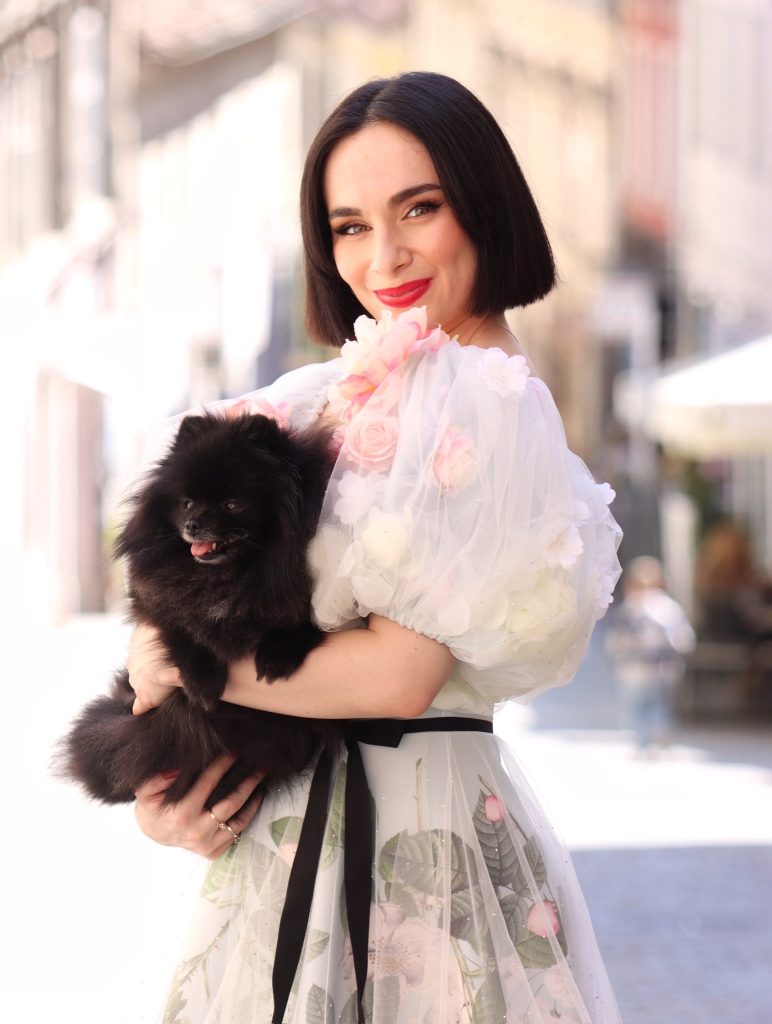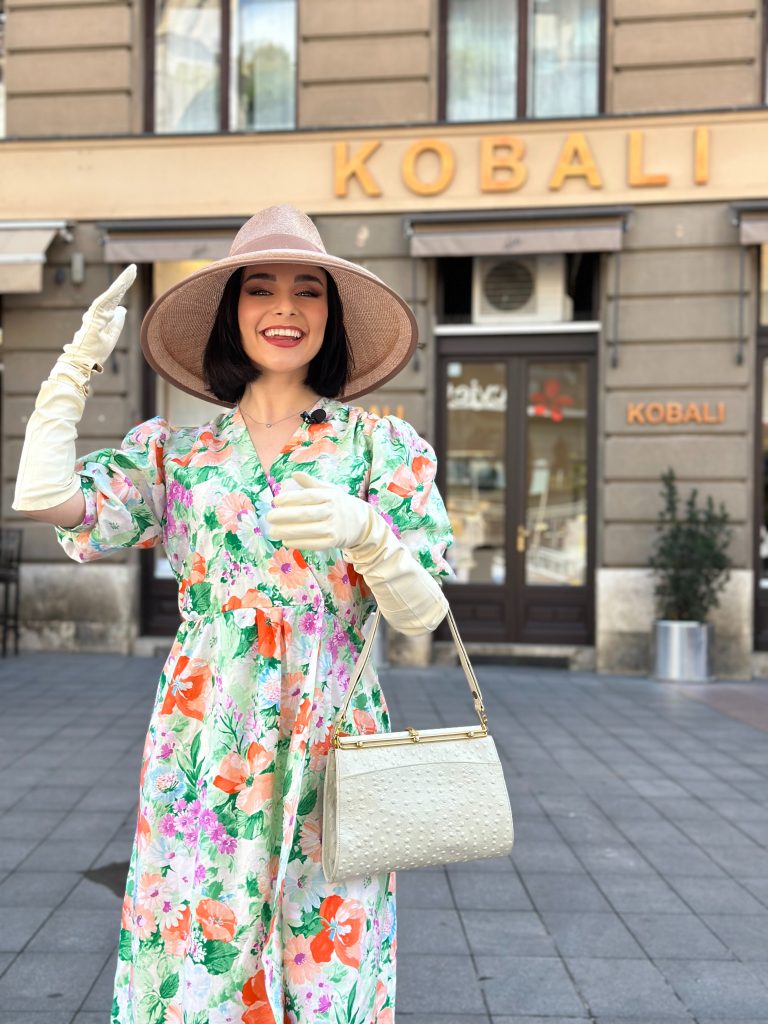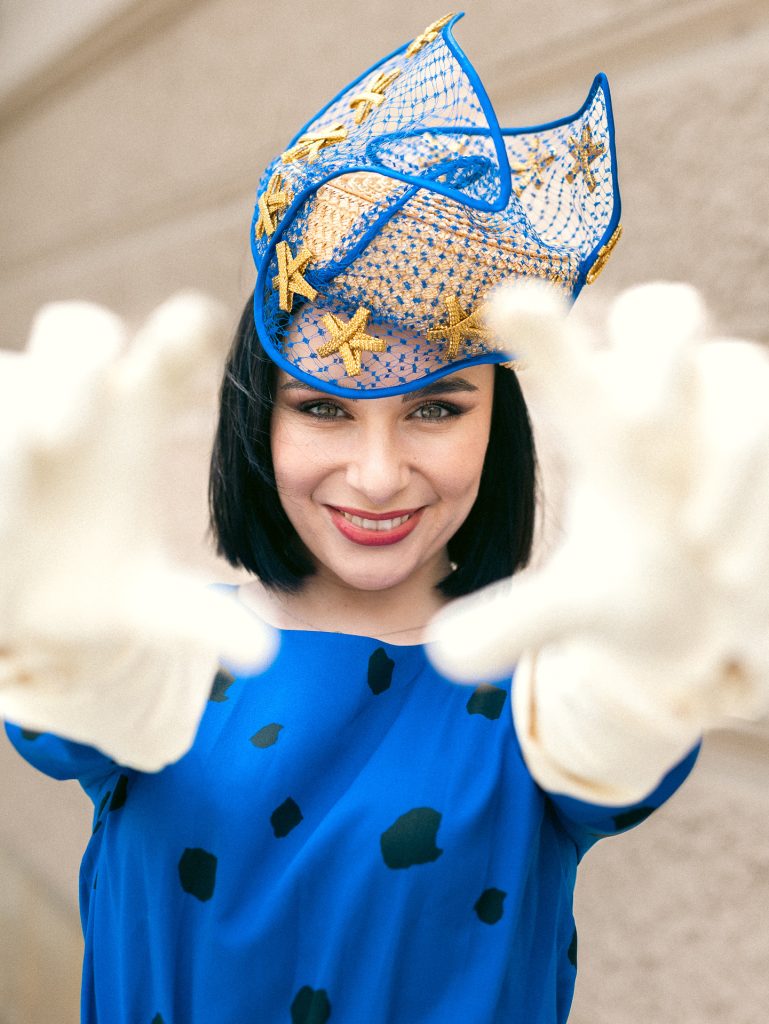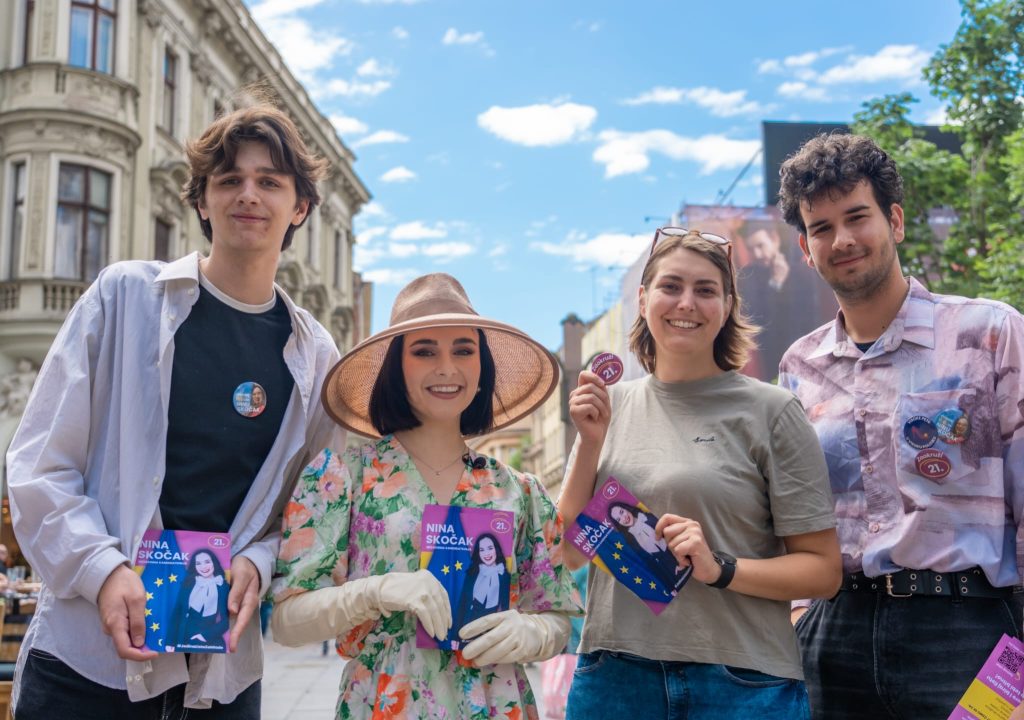June the 11th, 2024 – Nina Skočak is a Croatian TikToker who managed to turn social media views into actual votes. Capturing the attention of disillusioned young Croats who feel largely ignored by the powers that be, she garnered a huge number of votes in the recent European elections.
TCN interviewed the progressive Nina Skočak to find out more about her approach, her thoughts on her newly found political fame, and how she succeeded in mobilising the youth with her independent list, the aptly named GenZ.
You were relatively unknown to the public until yesterday, how does it feel to suddenly have so much attention being paid to you in the political sense after almost reaching the electoral threshold seemingly out of nowhere?

Over 250,000 people follow me on social media, and even before my political engagement, people often recognised me on the street, they’d approach me to take pictures and so on. However, politics is a totally different sphere, overnight, I entered the political arena where no matter what you do, a large number of people will have absolutely nothing positive to say. Suddenly, people started looking into my parents, my partner, where I live, where I pay my taxes, etc., just to find something “wrong” with me. That’s a whole new level of pressure and it isn’t easy to cope with at all. And when you’re a young woman who threw herself into the world of politics… There’s no shortage of negative pressure.
What sort of message do you perceive from this sudden popularity? Are the Croatian public hungry for political change, or is it because the demographic who follows you on social media (TikTok) are more aware of the social issues you draw attention to than older voters might be?
I think that the majority of Croats aren’t really ready for change and just aren’t interested in politics. I realised that Croats are very passive, and the perception of politicians is worse than the perception of criminals. You’re more socially acceptable if you deal drugs than if you’re involved in politics. I’ve been talking about European politics on TikTok for years now, and this good result didn’t simply happen overnight. I’m the only person in the entire Balkans who uses their platforms to talk about the importance of the EU. My followers know this, I’ve interested them in certain topics for the last three years. In my recent campaign, I decided to focus on mobilising the followers themselves.
There was an exceptionally low turnout, with just 750,000 people voting. Of that figure, a massive 30,000 voted for your independent list, and over 20,000 voted for you specifically. Has the ease of social media helped you reach the masses and get your message out in comparison to traditional media forms?

Certainly. I reach about 300,000 people on average with my posts, these are numbers that even traditional media have difficulty achieving today. For independent and young candidates like me, who aren’t part of a big and powerful political party, social media is one of the main channels to stand out and gain visibility among voters. Until about a decade, this was possible only through the party and via traditional media.
As a 26 year old woman, you are faced with the issues women still face today, including pink tax – how informed do you feel Croatian women are of this issue, and if they are, what do you think is the best way to get them to care about changing things?
Such topics are still generally not perceived as being important. They simply “aren’t politics” for the majority of people. Women have many more problems that have yet to be put on the agenda. One of the interesting topics that we started is menstrual sick leave. Many associations are actively working on these topics, but it doesn’t reach a very large number of people. Social media and famous people beginning to talk about it is the first step in my opinion.
It has been expressed by many younger people that they feel ignored by the larger parties in Croatia. Do you feel you are filling an important void for young Croats who feel disillusioned? If so, how?
I definitely feel like that, yes. According to the data, 30% of my voters didn’t bother to go and vote at the parliamentary elections at all, that is, they abstained. I’ve received hundreds of messages from young people, but also a few older ones who systematically avoid elections, they aren’t interested in politics, and they are now voting for the first time ever. This is a small victory for young people in Croatia. I honestly do hope that this will also be a signal to the big Croatian parties to finally include young people in their policies properly, and on their lists, and to give us a chance to talk about our future where it’s actually being shaped.
Kresimir Macan believes that you communicated your message and campaign in a better way than far more experienced politicians and parties did. What formula did you use, and what were your motives for that choice?
I remained completely true to myself and to my communication style. I didn’t want to pretend to be a classic politician. In my communication, I didn’t separate politics from my life – rather, I intertwined the two. My goal was to show that I really live the policies I’m talking about. When we talk about the problem of fast fashion – I don’t buy fast fashion, and so I organised a clothing exchange event. When we talk about the importance of political literacy – I explained how elections work and organised a pub quiz about the EU. I think that’s exactly why my followers got the feeling that I know what I’m talking about and as such have confidence in me.
Your independent list, GenZ, did very well among the youth in northern, eastern and central Croatia, but didn’t perform so well in the traditionally more conservative south – why do you believe that is?
As you said, they’re very traditional areas of the country, and my views are progressive, so that didn’t come as much of a shock to me.
Left-leaning, younger voters turned out in large numbers solely to vote for you. You actually took a considerable amount of votes from other left-leaning options after turning TikTok views and engagement into actual votes for change – what further political ambitions do you have in the future?

I’m still not sure, at least not at this moment in time. I’m not a career politician, I currently work 2 jobs and cannot devote 100% of my time to politics. Such a good result definitely motivated me to think more seriously about bringing this engagement to a higher level, but I have to think carefully about how and in what form I might do that with the other candidates from my list. I definitely think that this story has a lot of potential going forward.
What do you think other left-leaning parties in Croatia are missing in terms of capturing the attention of younger voters?
This is an issue faced by not only the Croatian left, but the entire European Union left. Right-wing parties give opportunities to young people much more often and know how to reach them in a better way. In my opinion, the key thing is that young people must get involved in politics. Parties in Croatia perceive young people as volunteers, at best assistants, but not as leaders. Imagine if, as a young person, you see a member of your generation on the news now and then and they sit down and talk about problems from your perspective… It would probably result in far greater interest among young people.
If you could send out a very particular message to disillusioned youth in Croatia, what would it be?
The future must be enshrined with your vote. We must not forget that the key to democracy is the possibility of participation, not just voting. We must be brave and not just sit back and accept the status quo if it doesn’t truly suit us.










